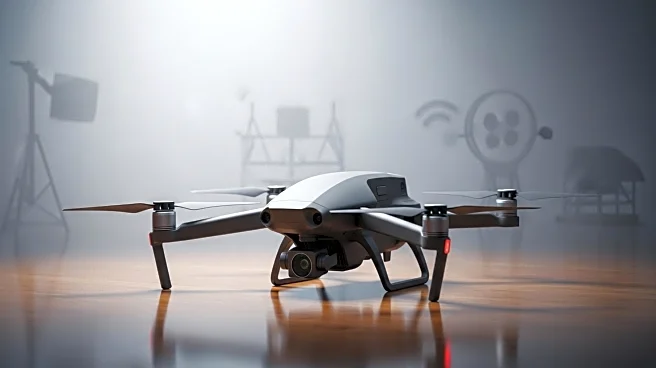What is the story about?
What's Happening?
Denmark has imposed a temporary ban on civil drone flights in its airspace as it prepares to host a significant European Union meeting focused on defense and the war in Ukraine. This decision follows a series of unexplained drone sightings over civilian airports and military bases, which led to temporary airport closures and travel disruptions for thousands. The ban, effective from Monday to Friday, aims to prevent any confusion between hostile and legal drones during the summit. Danish Defense Minister Troels Lund Poulsen emphasized the need for optimal security conditions for the armed forces and police during the event. The incidents have heightened security concerns, especially with recent Russian drone incursions into NATO airspace over Poland and Romania.
Why It's Important?
The drone ban underscores the growing security challenges faced by European nations amid rising tensions with Russia. The unexplained drone activities have raised alarms about potential threats to critical infrastructure and public safety. Denmark's proactive measures reflect broader concerns about hybrid warfare tactics, where drones could be used for espionage or sabotage. The situation also highlights the importance of international cooperation in addressing security threats, as evidenced by NATO's response to bolster defense measures in the Baltic Sea region. The involvement of multiple European countries in providing anti-drone systems and support further emphasizes the collective effort to safeguard the region's security.
What's Next?
As the EU summit approaches, Denmark and its allies will likely continue to enhance security measures to prevent any disruptions. The presence of NATO's Baltic Sentry mission and additional support from countries like Germany, France, and Sweden indicates a coordinated effort to monitor and counter potential drone threats. The outcome of the summit could lead to further discussions on strengthening defense capabilities and addressing the challenges posed by unmanned aerial vehicles. The situation may also prompt other European nations to reassess their drone regulations and security protocols.
















